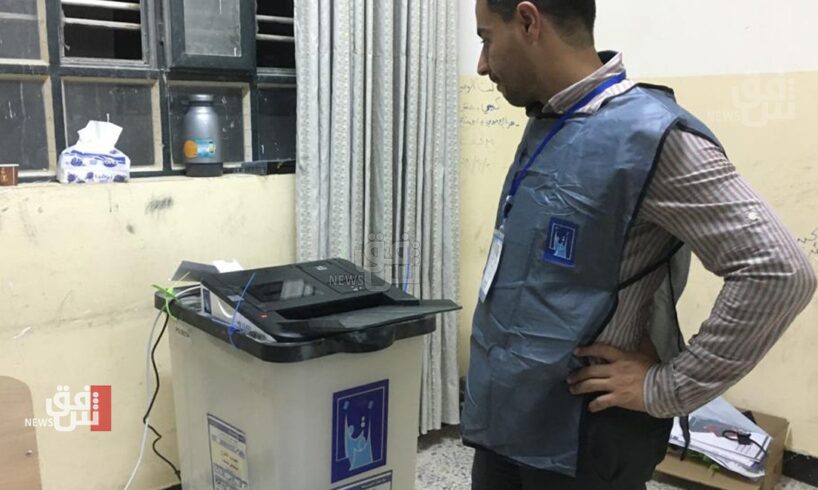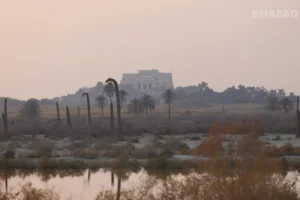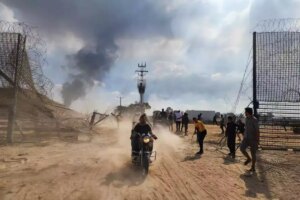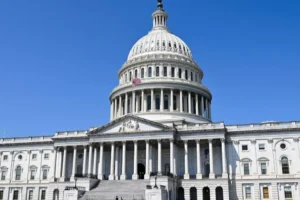
2025-07-23T14:31:25+00:00
font
Enable Reading Mode
A-
A
A+
Shafaq News
The Independent High Electoral Commission’s (IHEC) decision to abolish the use of indelible ink in Iraq’s upcoming November 2025 elections has ignited sharp criticism from key political forces, especially in Kirkuk.
While the commission frames the move as a modernization step toward a fully biometric system, its political ramifications point to a deeper crisis of confidence in Iraq’s fragile democratic institutions.
A Symbol of Integrity Removed
For years, indelible ink has served as a visible assurance that each voter casts only one ballot. Commonly used in many developing democracies—including India, Lebanon, Afghanistan, Indonesia, and Nigeria—it offers a low-tech but highly symbolic method of deterring voter fraud.
Iraq, like Egypt and other transitional democracies, has historically relied on the “ink step” to build credibility in elections marred by factional competition and institutional weakness.
While advanced democracies often dispense with ink—relying on secure digital registries, ID systems, or mail-in voting—the Iraqi context differs starkly. In a system burdened by disputed voter rolls, weak oversight in peripheral regions, and contested ethnic territories, the ink is more than an anti-fraud measure; it is a public demonstration of electoral fairness.
Biometric Promise Meets Political Skepticism
IHEC justifies the ink’s removal on technical grounds. According to commission officials, the biometric voter cards—complete with fingerprint and facial recognition—make manual safeguards redundant. These cards are meant to verify voters electronically, ensuring each person votes only once and only in their designated station.
Yet this rationale has not convinced everyone, particularly in volatile areas. The Unified Iraqi Turkmen Front and the Arab Council in Kirkuk issued swift condemnations, arguing that the ink’s elimination could pave the way for renewed manipulation, especially in provinces like Kirkuk, where past elections have been marred by allegations of demographic engineering and vote tampering.
According to Mohammed al-Saadoon, a specialist in electoral affairs, the concerns voiced by Arab and Turkmen communities in Kirkuk stem from previous incidents in which individuals were reportedly able to vote at multiple stations or centers. This, he notes, has fueled widespread suspicion of fraud, particularly in the absence of rigorous and independent auditing of voter registries by a specialized committee.
Kirkuk’s Fragile Balance
Kirkuk’s history of ethnopolitical contention further complicates the issue. As a province disputed between Kurds, Arabs, and Turkmen, every electoral mechanism is intensely scrutinized. The ink’s removal has reignited long-standing fears among Turkmen and Arab communities of demographic manipulation—specifically, the claim that thousands of Kurdish voters were registered in the province after 2003 to tilt electoral balances.
These fears have been exacerbated by what some describe as IHEC’s reluctance to enforce Federal Court decisions mandating a comprehensive audit of voter lists in Kirkuk.
Al-Saadoon emphasizes that such demands for audit and reform are not new but are persistently raised because Kirkuk represents a focal point of competition among its three main communities. Arabs and Turkmen, he says, view the verification of voter registries as a necessary step toward restoring faith in the electoral process.
On the other side, Kurdish parties reject accusations of voter inflation, asserting that any increase in Kurdish voter numbers reflects the return of previously displaced families to Kirkuk under earlier government decisions—not an attempt to engineer the province’s demographics.
At stake is the perceived legitimacy of Iraq’s electoral system in regions where politics remains zero-sum and where the loss of a seat could mean the erosion of community rights or federal funding. In such contexts, visible anti-fraud mechanisms carry enormous symbolic weight. Their removal, especially without extensive stakeholder consultation, may deepen already festering doubts in the democratic process.
Written and edited by Shafaq News staff.





